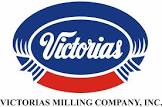Victorias Milling Co Inc

Total capacity of implemented projects
10 - 50 MW
Countries of projects presence
1
Victoria's Milling Company, Inc. (VMC) is a Philippine-based company that has been in the sugar industry for over a century. Founded in 1919, VMC has since grown to become one of the largest integrated sugar producers in the country, with a production capacity of up to 33,000 tons of sugarcane per day. However, in recent years, the company has also expanded its operations to include renewable energy projects, particularly in the biomass and waste sectors.
Biomass is a renewable energy source that is derived from organic matter, such as sugarcane bagasse, rice husks, and coconut shells. VMC has been utilizing biomass as a fuel source for its sugar mill operations for many years. In fact, the company's cogeneration plant, which was commissioned in 2009, is one of the largest biomass power plants in the country. The plant generates up to 40 megawatts of electricity, which is enough to power the company's sugar mill and surrounding areas. The plant also reduces the company's carbon footprint by utilizing sugarcane bagasse, a byproduct of the sugar milling process, as a fuel source instead of fossil fuels.
In addition to its cogeneration plant, VMC has also been exploring other biomass projects. In 2017, the company signed a memorandum of understanding with a local government unit to develop a biomass power plant in Negros Occidental. The proposed plant will utilize rice husks as a fuel source and is expected to generate up to 25 megawatts of electricity. The project is still in the planning stage, but once completed, it will further diversify VMC's renewable energy portfolio and contribute to the country's energy security.
Aside from biomass, VMC is also involved in waste-to-energy projects. Waste-to-energy is a process that converts waste materials into usable forms of energy, such as electricity or heat. The company's waste-to-energy project involves the use of biogas, a byproduct of the anaerobic digestion of organic waste, as a fuel source for its sugar mill operations. The biogas is produced from the company's wastewater treatment plant, which treats the wastewater generated by the sugar milling process. The biogas is then used to fuel the company's boilers, which generate steam for the sugar mill's operations.
VMC's waste-to-energy project not only reduces the company's reliance on fossil fuels but also helps to address the issue of waste management. The project demonstrates the potential of using organic waste as a resource for energy production, rather than simply disposing of it in landfills. The project also contributes to the country's efforts to reduce greenhouse gas emissions, as the use of biogas as a fuel source produces fewer emissions than the use of fossil fuels.
In addition to its renewable energy projects, VMC is also committed to sustainable agriculture practices. The company has implemented various initiatives to reduce its environmental impact and promote sustainable land use. For example, VMC has adopted a zero-burning policy, which prohibits the burning of sugarcane fields before harvesting. This policy helps to reduce air pollution and soil degradation, as well as preserve the biodiversity of the surrounding areas.
VMC has also implemented a sustainable agriculture program, which includes the use of organic fertilizers, integrated pest management, and crop diversification. The program aims to improve soil health, reduce chemical inputs, and increase crop yields. The company also supports the development of sustainable agriculture practices among its sugarcane farmers through training and technical assistance.
Overall, VMC's renewable energy projects in the biomass and waste sectors demonstrate the company's commitment to sustainability and environmental stewardship. By utilizing organic waste as a resource for energy production and reducing its reliance on fossil fuels, VMC is contributing to the country's efforts to address climate change and promote energy security. The company's sustainable agriculture practices also demonstrate its commitment to responsible land use and environmental conservation. As VMC continues to expand its renewable energy portfolio, it is poised to become a leader in the Philippines' transition to a low-carbon economy.